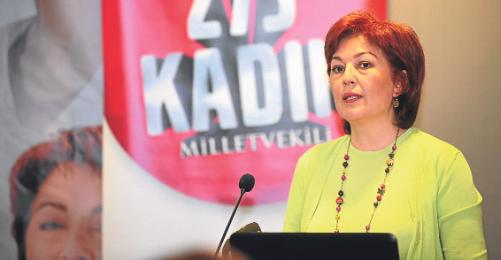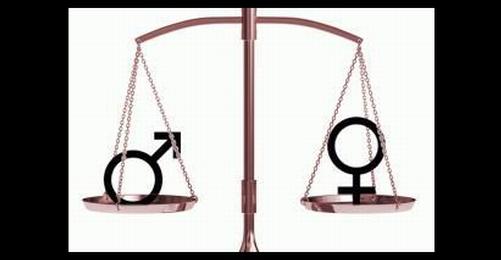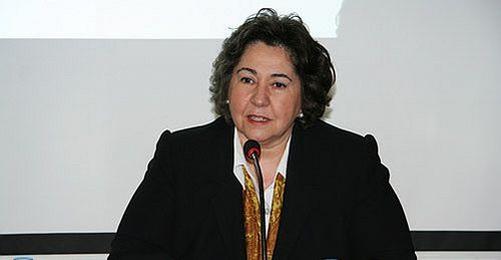Turkishcypriot Hasguler Runs in EU Election
Hasguler asked for support from both Greek Cypriots, and Turkish Cypriots who would go to the south to cast their votes.
He reminded that Turkish Cypriots are still citizens of the Cyprus Republic. Hasguler said he was running in the elections "to bring a new point of view to history."
"Annan plan may not bring peace even if it brings solution," said Hasguler. "The aim should be a unitary Cyprus instead of a federal one. An equal, sovereign republic instead of a divided country," said Hasguler.
"We should form a new history where lessons of peace can be depicted instead of ethnic clashes. We should come together at political parties, unions, bars not based on our ethnicity but as liberals, rightists and leftists," said Hasguler.
The academician answered bianet's questions:
Why are you running in the elections?
First of all, I became a candidate because I would like to question this movement of withdrawal. It's said "Greek Cypriots kicked us out of the republic." However, we actually granted the Cyprus Republic to Greek Cypriots.
As Turkish Cypriots withdrew from the Cyprus government and state, on March 5, 1964, the United Nations granted to Greek Cypriots the title of the government of Cyprus Republic. Turkey recognized this government until 1974.
Between the years 1964-1974, Turkish Cypriots lived in exile in their own land. After 1974 they were isolated from the whole world.
On March 3, 1990, Greek Cypriots applied for EU membership. And nobody asked for an account of the mistake made in 1964. My goal is to have these historic realities debated in a fair way.
The Annan Plan does not include the clearance of British bases from the island. The United Kingdom, through its bases, will be able to intervene in the Middle East, Cyprus, Turkey and Greece. However, clearance of the bases is important for peace in the Middle East and our region.
The third reason for my candidacy is that I can see the difficulties of implementing the Annan Plan. This plan can only live if people with good will and high qualities spend a lot of effort.
Fourth, as a Turkish Cypriot who has been living in Turkey for the last 21 years, I believe I can build a bridge of friendship and peace between Turks, Greeks, Turkish Cypriots and Greek Cypriots.
What do you think about the Annan Plan?
I have doubts about the compensations issue. It is also not true that the European Union will bring prosperity to Turkish Cypriots. The EU can only bring property to Cyprus after Turkish Cypriots begin producing as much as the Greek Cypriots.
The Annan Plan will not work if it fails to create jobs for the 50-60 thousand Turkish Cypriots who will have to leave their houses when the Greek Cypriot refugees return.
Social-economic problems played a big role in the collapse of the Cyprus Republic. When we look at the share Turkish Cypriots got from the national income between the years 1960-1963, we will see that they got 17 percent in healthcare, 1-1.5 percent in commerce, and 3-3.5 percent in education. This demonstrates the reality that there was a division of class underlying the ethnic problems.
The issue of compensations is very important so that the Annan Plan does not result in similar problems. Slogans that say "We will join the EU and become rich," should be grounded on realities. Bizonality is in line with Turkish arguments and U.N. agreements. Annan Plan offers balance and political equality.
It is criticized that only 45 thousand of Turkish settlers will be granted Cypriot citizenship?
"Turks in Cyprus" is a problem which rose after the Turkish Republic began transferring population to the Cyprus Turkish Federal State in an effort to overcome the shortage of workers.
Politicians in Cyprus and Turkey were not successful in implementing a population policy. Turkish Cypriot leader Rauf Denktas and the National Unity Party (UBP) carried voters from Turkey to Cyprus to sway the election results in their own favor.
The U.N. Security Council has many decisions accusing the Turkish Republic for changing the demographics in Cyprus. If those 45,000 people are today going to be accepted as citizens of the United Cyprus Republic and the citizens of EU, then, that is the success of the current government, and should be appreciated.
Is the Annan Plan the real solution?
You cannot bring peace to Cyprus from top down and by ignoring religious and cultural elements. The message EU gives to Turkey in December regarding its membership prospects is very important.
What will happen if Turkey cannot count on EU membership? Will the Annan Plan become another point of division? The plan, as it is, may bring a solution, but not peace. We, however, want the island to be unified.
The referendum process has begun. How do you expect it to end?
The Greek Cypriot leader Tassos Papadopoulos was a member of EOKA. Although he did not deserve it at all, he was elected president with AKEL's support.
But he is still a fanatic, a nationalist. AKEL is kind of training him. When we take into consideration that Papadopoulos does not have a very different viewpoint than Denktas, he may say "No to the plan."
The far right party DIKO and the church will also campaign against the plan. The main characteristic of those who are against the plan is that they are nationalists. Because they believe being anti-Turkish would help them preserve their identity within the EU, they think they can benefit from the division of Cyprus.
AKEL, Clerides' party DISI and some other small parties will support the plan. It can be said that their votes are about 60-65 percent.
In the north, the National Unity Party (UBP) has been adopting right-wing policies for a long time. Also, there are many leaders who have benefited from the current situation in Cyprus, and from the property left behind by Greek Cypriots.
Although many of its members will say "yes" to the Annan plan, UBP, as the biggest right-wing party will campaign against the plan.
Rauf Denktas is currently following the developments. If he sees that Turkish Cypriots are inclined to say "no," he will campaign against the plan. If he sees that the people will overwhelmingly support the plan, he would not want to be among those who are against the plan.
Coalition partner Democrat Party's attitude also depends on that. Son Denktas is following his father's approach. I hope that Denktas, who says he has departed from Turkish Cypriot and Turkish nationalism, supports the plan. But that is a small possibility. He may remain impartial.
CTP and the United Force s want peace. I hope they will say "yes" to the Annan plan. BDH and other small opposition parties will say "yes" to the plan.
Turkey's attitude will be the determining factor in the referendum result on the Turkish Cypriot side. If the Turkish government remains impartial and does not campaign against the plan, there is a big possibility that people will vote "yes" for the plan.
What is the situation in the streets? How do Cypriots look at the problem and the solution?
In the solution process, some social movements formed in the north. Because Greek Cypriots are much more confident about their economic situation, movement in the south was more limited. They are mostly interested in retrieving their memories in the north.
Today, we are seeing the shortcomings of Turkish Cypriot opposition. The opposition, who could not come to power for a very long time, became quite when it got into power through CTP. Both union efforts and peace efforts seem to in on a holiday now.
The movement in Cyprus led to the partial lifting of the travel ban between the two sides. But there is no end to the fight for peace. The fight should continue especially after the Annan Plan is accepted.
The main difficulties will begin after the plan has been accepted. Streets should not be left empty.
We need to open museums of history that teach lessons of peace, not ethnic clashes. We need to create a new history, which explains the reasons of fights and clashes. Both sides should be active in this.
Turkish and Greek Cypriots should set up common parties. We need to come together in parties not based on ethnicity but as liberals, rightists, and leftists. We need to come together at unions, bars. (BB/EA/YE)









